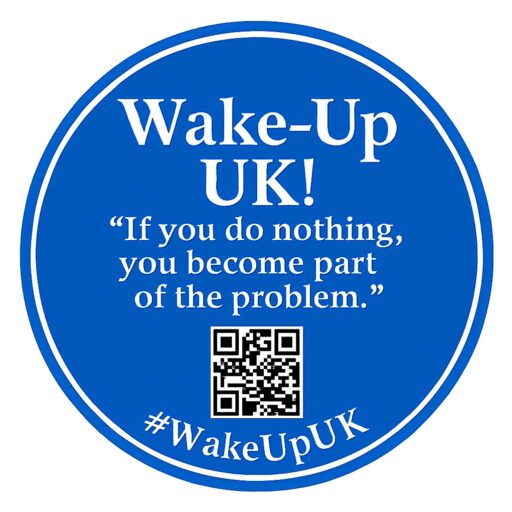I never planned to enter politics. After building a career and raising a family, I grew tired of party tribalism and spin drowning out honest solutions. Headlines mattered more than long-term progress, and voters felt ignored. If I let the system’s failures pass unchallenged, I’d be part of the problem—so I decided to try something different.
I launched the Independent Platform to prove that integrity could break through the noise: no party machinery, no donor strings, and any MP’s salary I earned donated back to local charities chosen by residents. My small media team and I produced calm, direct graphics, videos, and leaflets to explain our values without puffery or empty promises.
What followed was near-total media silence. Open letters and follow-ups to local and national outlets went unanswered, and without a party logo our campaign felt invisible. Yet as traditional media turned away, thousands of real people kept writing in. My inbox became the campaign—I answered every question, from food banks to assisted dying—believing that genuine dialogue mattered more than chasing headlines.
The BBC’s blunt verdict—that independents were “too scattered to take seriously”—confirmed what I’d seen at every turn. Without a unified platform, media access, or organisational support, even the most committed individuals struggle to win seats. Tactical and defensive voting in safe seats only reinforced the two-party narrative, drowning out months of honest engagement.
I commissioned a national poll that showed 57 % of Britons were open to voting for an independent—and it felt like hope. But when election day came, that openness didn’t translate into ballots. One candidate knocked on 22,000 doors yet secured just over 1,800 votes. I realised that independents, by definition, are too fragmented: lacking collective identity, shared resources, and the ability to coordinate strategy or form effective coalitions, we end up shouting into the void rather than amplifying one another.
Rather than give up, I asked: what if clarity and shared values became the organising principle—without forming a conventional party? The answer was A Manifesto Without a Party, a concise, evidence-based blueprint that limits promises to what can actually be funded and delivered, footnotes every fact for auditability, and invites public and cross-bench refinement.
This manifesto rests on simple commitments—honesty over hype, a fair burden shared by all, stable multi-year plans within legal and budgetary realities, and an open-source process for policy testing. It isn’t a membership drive or electoral campaign. It’s a public line in the sand, a living document anyone can read, challenge, and build on to hold all politicians to clear standards.
If honesty itself proves more powerful than spin, momentum will follow. Until then, A Manifesto Without a Party stands as an open invitation to citizens, experts, and elected officials: read it, question it, carry it forward—and together, let’s choose clarity over noise.
A Manifesto Without a Party
An open invitation to think differently about politics
Across the UK, many people feel politics isn’t working the way it should. Some feel unheard. Others are frustrated by decisions that seem rushed, unfair, or short-sighted. Promises often fade, and trust has worn thin.
This isn’t a plan to start a new political party—at least, not yet.
Instead, this is a starting point. A set of ideas and values written clearly and openly, without slogans or spin. It’s a way to think together about how public life could be more honest, more thoughtful, and more fair—for everyone.
We’re calling it a manifesto without a party. It doesn’t belong to anyone. It’s not asking for anything. It’s simply here to be read and considered. And if it turns out that it speaks to enough people, then something more structured may grow from it in time.
For now, we invite you to take a look—think about the ideas, question them, share them, build on them. No pressure. No promises.
Just a calm beginning.
So What Do We Do About It ?
There’s a saying: if you’re not doing anything about a problem, then you’re part of it. And right now, that feels hard to ignore.
Across the UK—and beyond—people are voicing frustration. The system isn’t working. Trust is low. The future feels uncertain. But most of the energy stops at complaint. Few are willing to act, especially if it means change or personal sacrifice.
This is an attempt to move beyond that.
With AI as a research assistant, this is a first draft of something better. Not just another list of grievances, but a practical starting point. A way to step off the path we’re on—the quiet walk toward the cliff edge, eyes closed, hoping for the best.
These ideas aren’t final. They need improving. If you disagree, suggest something better. But whatever the answer is, it must be inclusive. It must be fair to every part of society. And it must ask everyone to take a fair share of the burden.
Because if change is needed, it can’t fall on the same shoulders every time.
The Vote-Chasing Spiral
Politics changes when winning votes becomes more important than solving problems. Promises get louder. Deadlines get shorter. Legal and practical limits are brushed aside. The goal is no longer to fix things—it’s to look like action is being taken.
Migration is a good example. Plans are announced that sound tough but are hard to deliver. They often break legal rules, cost huge amounts, and rely on systems that don’t exist. When they fail, the response isn’t to rethink—it’s to go even further. Delays are blamed on judges, lawyers, or foreign governments. The cycle repeats.
